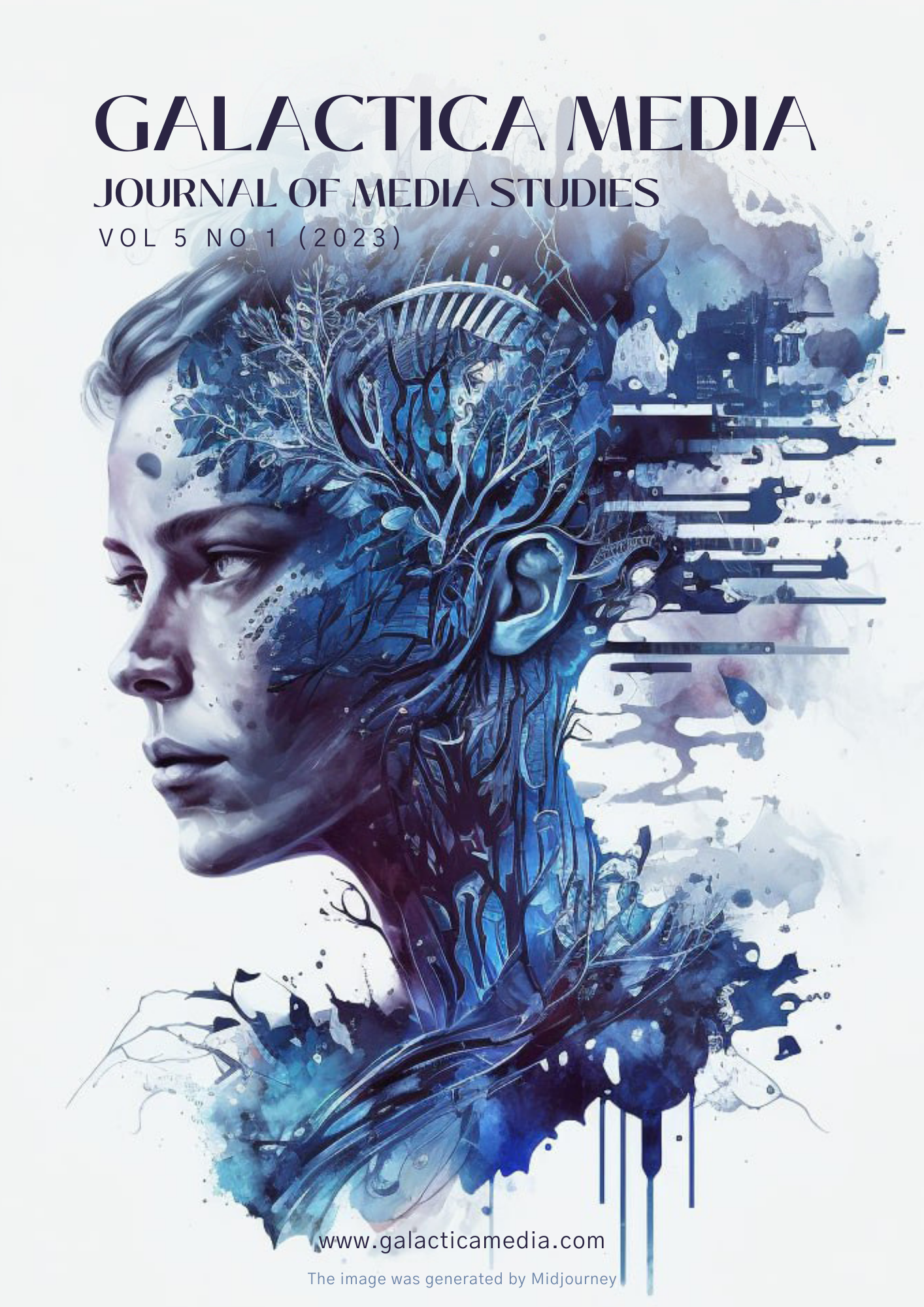Abstract
The article presents the problem of the existential feasible in the digital. The relevance of the problem is gaining weight in the so-called digital age, when the objectives in the human world are represented by technology and the technological. The following questions from the 20th century are becoming relevant again: the relationship between a person and technology; the future of a person and technology; the human / existential in the context of multiplying technology. In the 21st century, the digital can be seen as a cluster of external objectivity in the everyday life. The article raises questions about how the talk about the existential dimension in the digital age is possible; whether there are grounds of speaking about the dynamics of human existential conditions in the process of intensification of everything that is called digital today; and if yes, then in what format and with what language. Given these questions, we understand the digital as a special topos of human existence, a space of manifestation, “highlighting” the existential, which can be comprehended and conceptualized. In the digital age the human being remains, same as his/her existentials. In the markup of the digital, both the individual and the existentials are subject to serious transformation. This is illustrated by digital subjects, digital twins, digital traces/prints, which have an effect on the individual and his/her existential filling. From this we deduce the idea of digital anthropology as a new research field.
References
Akçayır, M., Dündar, H., & Akçayır, G. (2016). What makes you a digital native? Is it enough to be born after 1980? Computers in Human Behavior, 60, 435–440. https://doi.org/10.1016/j.chb.2016.02.089
Chernigovskaya, T. V. (2021). More on Brain and Semiosis: Can We Find a Point in Neuronets? Voprosy Filosofii, 6, 5–13. https://doi.org/10.21146/0042-8744-2021-6-5-13 (In Russian).
Eugenios, J. (2015, June 3). Ray Kurzweil: Humans will be hybrids by 2030. CNNMoney. https://money.cnn.com/2015/06/03/technology/ray-kurzweil-predictions/index.html
Fominykh, N. (2019). Merab Mamardashvili. The problem of heating and the possible human being. Syg.Ma. https://syg.ma/@nikkta/mierab-mamardashvili-probliema-oboghrieva-i-vozmozhnyi-chieloviek (In Russian).
Foucault, M. (2008). Technology itself. Logos, 2, 96–122. (In Russian).
Frolov, A. V. (2018). Existence and peace in the digital age. Vestnik of Moscow University. Series 7: Philosophy, 3, 18–30. (In Russian).
Gálik, S., & Gáliková Tolnaiová, S. (2020). Cyberspace as a New Existential Dimension of Man. In E. Abu-Taieh, A. El Mouatasim, & I. H. Al Hadid (Eds.), Cyberspace. IntechOpen. https://doi.org/10.5772/intechopen.88156
Habermas, J. (2003). Filosofskij diskurs o moderne. Ves' mir. (In Russian).
Kasavina, N. A. (2015). Jekzistencial'nyj opyt v filosofii i social'no-gumanitarnyh naukah. Institute of Philosophy, Russian Academy of Sciences. (In Russian).
Kasavina, N. A. (2020). “Digital Existence”: A Digital Turn in the Understanding of Human Being. The Digital Scholar: Philosopher’s Lab, 3(4), 73–89. https://doi.org/10.5840/dspl20203441 (In Russian).
Keen, A. (2018). How to fix the future: Staying human in the digital age. Atlantic Books.
Lagerkvist, A. (Ed.). (2020). Digital existence: Ontology, ethics and transcendence in digital culture (First issued in paperback). Routledge.
Leontiev, D. A. (2014). Meaning Making and its Contexts: Life, Structure, Culture, Experience. The World of Psychology, 1, 104–117. (In Russian).
Mikhailov, I. A. (n. d.). Genesis to death [The New Encyclopaedia of Philosophy]. https://iphlib.ru/library/collection/newphilenc/document/HASH01bef37cc672aab9a62e9dbe (In Russian).
Nikou, S., Brännback, M., & Widén, G. (2020). The impact of digitalization on literacy: Digital immigrants vs. Digital natives. Proceedings of the 27th European Conference on Information Systems (ECIS), Stockholm & Uppsala, Sweden, June 8-14, 2019. https://aisel.aisnet.org/ecis2019_rp/39
Ocheretyany, K. A. (2021). From Behavioral Design to Reverence for Life: Care Policies for the Digital Environment. Galactica Media: Journal of Media Studies, 3(2), 166–193. https://doi.org/10.46539/gmd.v3i2.145 (In Russian).
Pornpongtechavanich, P., & Wannapiroon, P. (2021). Intelligent Interactive Learning Platform for Seamless Learning Ecosystem to Enhance Digital Citizenship’s Lifelong Learning. International Journal of Emerging Technologies in Learning (IJET), 16(14), 232. https://doi.org/10.3991/ijet.v16i14.22675
Prensky, M. (2001a). Digital Natives, Digital Immigrants Part 1. On the Horizon, 9(5), 1–6. https://doi.org/10.1108/10748120110424816
Prensky, M. (2001b). Digital Natives, Digital Immigrants Part 2: Do They Really Think Differently? On the Horizon, 9(6), 1–6. https://doi.org/10.1108/10748120110424843
Rogerson, S. (2018). Digital Existence—The Modern Way to Be. Unpublished. https://doi.org/10.13140/RG.2.2.29522.25289
Rothblatt, M. A. (2015). Virtually human: The promise – and the peril – of digital immortality. Picador.
Sartre, J.P. (1989). Existentialism is humanism. In Twilight of the Gods (pp. 319–344). Politizdat. (In Russian).
Serr, M. (2016). A girl with a thumb. Ad Marginem. (In Russian).
Smirnov, S. A. (2021). Human and digit: the story of temptation. Bulletin of Chelyabinsk State University, 8, 22–29. https://doi.org/10.47475/1994-2796-2021-10803 (In Russian).
Smith, E. E., Kahlke, R., & Judd, T. (2017). From digital natives to digital literacy: Anchoring digital practices through learning design. SCILITE 2018—Conference Proceedings—35th International Conference of Innovation, Practice and Research in the Use of Educational Technologies in Tertiary Education: Open Oceans: Learning Without Borders, 510–515.
Solomko, D. V. (2022). Ecohumanistics as a kind of scientific knowledge and methodology for understanding the specifics of the relationship “human — technical and-technological world”. Socium i vlast, 1, 15–25. https://doi.org/10.22394/1996-0522-2022-1-15-25 (In Russian).
Stiegler, B. (2012). États de choc: Bêtise et savoir au XXIe Siècle [States of shock: Foolishness and knowledge in the 21st century]. Fayard/Mille et une nuits. (In French).
Trufanova, E. O. (2010). Person in labyrinth of identities. Voprosy Filosofii, 2, 13–22. (In Russian).
Trufanova, E. O. (2021a). Private and Public in the Digital Space: Blurring of the Lines. Galactica Media: Journal of Media Studies, 3(1), 14–38. https://doi.org/10.46539/gmd.v3i1.130 (In Russian).
Trufanova, E. O. (2021b). Escapism: Between Nature and Culture. Vestnik of Northern (Arctic) Federal University.Series “Humanitarian and Social Sciences”, 1, 125–134. https://doi.org/10.37482/2287-1505-V081 (In Russian).
Tulchinskii, G. L. (2018). Digitized Нumanism. Russian Journal of Philosophical Sciences, 11, 28–43. https://doi.org/10.30727/0235-1188-2018-11-28-43 (In Russian).
Tulchinskii, G. L. (2021). Digitalization: Opportunities and Socialand Humanitarian Costs. Statement of Applied Ethics, 57, 34–47. (In Russian).
Yaroslavtseva, E. I. (2018). The Autopoietic Person in a Digital Format. Human Being, 2, 121–127. https://doi.org/10.7868/S0236200718020104 (In Russian).
Znakov, V. (2013). Inconceivable and mysterious as attributes of existential experience. Psychological Studies, 6(31). https://doi.org/10.54359/ps.v6i31.675 (In Russian).
Znakov, V. V., & Kasavina, N. A. (2018). Existential experience: a mystery and a problem. Philosophy Journal, 11(2), 123–137. https://doi.org/10.21146/2072-0726-2018-11-2-123-137 (In Russian).

This work is licensed under a Creative Commons Attribution 4.0 International License.

